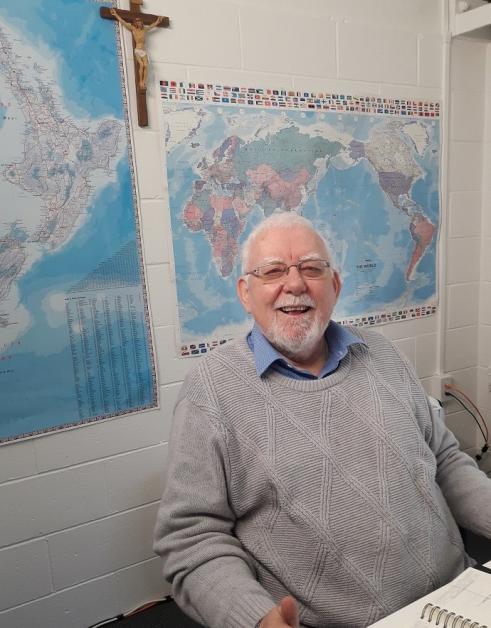 Fr Tom Rouse - Country Leader New Zealand
Fr Tom Rouse - Country Leader New Zealand
Go back to normal?
I find it strange when people talk about “returning to normal”. The first question would be: what was “normal”? I’m going back at least 18 months. My days were filled with public celebrations, like our daily week-day masses, regular face-to-face meetings, online bookings, open-air walks down to the river and through the parks, the odd overseas travel to regional meetings in Australia or Fiji and the now-and-again concerns about changing weather patterns, and the war on terrorism. Now I’m starting to get a little bit hazy because it was a different world.
March 2020 and we had already been warned about a virus that spreading around the planet, to the extent that the World Health Organisation had finally decided that it was not just an epidemic but a pandemic. Donald Trump and others kept on telling us that it was just like the flu and that a cure was just around the corner. Our Prime Minister, Jacinda Ardern, thankfully decided to go hard and fast. Before we knew it, we quickly ascended from level 1 lockdown to level 4. I cancelled my overseas trips to Fiji and the United States. I then quickly bought a laptop computer for our office administrator so that she could work from home. There was a flurry of activity during those few days and then, everything just stopped. That was when I first heard the term “bubble” and the advice to “be kind”. So started a new daily television show - the 1.00pm news conference conducted by the Prime Minister and Dr Ashley Bloomfield.
Although we came out of the higher levels of lockdown, we never went back to “normal” so to speak. We never went below level 1. We watched the drama unfolding in China, the United States and Europe. Despite denials and conspiracy theories, people were becoming infected and dying around the world. There was political turmoil in the United States where they eventually survived the election of a new president. Europe was swaying to and fro between different policies – herd immunity and elimination. There were new surges and new variations of the virus. The situation in Latin America and, in particular, Brazil, became alarming. And then across Asia, following the initial outbreak in China, the virus hit India and Indonesia. Meanwhile, as the new year opened, there was a military coup in Myanmar, a retreat from Afghanistan followed by the unexpected advance of the Taliban. Our world climate was becoming increasingly chaotic. Huge fires were raging from the United States to Europe. There were also floods like we hadn’t seen before. Then the massive storms that lashed different parts of the world, like that which swung all the way up from New Orleans to New York.
Here in Aotearoa, we may have thought we were immune and living in a secure bubble, even as we watched with alarm as the virus spread rapidly in Fiji and took hold in New South Wales and Victoria, prompting our government to quickly close off one travel “bubble” after another. Then, we had one case in Auckland and, before we knew it, clusters began to appear, and our leaders once again went for the “hard and fast” option. We are presently down to level 2 here in Lower Hutt, like most of the country, except for Auckland which remains at level 4. Now we live with social distancing, vaccinations, wearing of masks, contact tracing, virus testing, road-blocks, waiting one’s turn to enter the supermarket, PPE equipment and MIQs (managed isolation and quarantine). Sounds like a sci-fi movie and whole new language. Normal?
Whatever the “new” normal will be, I don’t think it will be anything like the old. As I think about what this future will be, there is passage from Pope Francis’ recent book Let Us Dream: The Path to a Better Future (Simon and Schuster, 2020) which speaks to me about taking responsibility for this future. He says:
“God asks us to dare to create something new. We cannot return to the false securities of the political and economic systems we had before the crisis. We need economics that give all access to the fruits of creation, to the basic needs of life: to land, lodging and labour. We need a politics that can integrate and dialogue with the poor, the excluded, and the vulnerable, that gives people a say to the decisions that impact their lives. We need to slow down, take stock, and design better ways of living together on this earth.”
Tom Rouse
Country Leader - Lower Hutt, New Zealand
